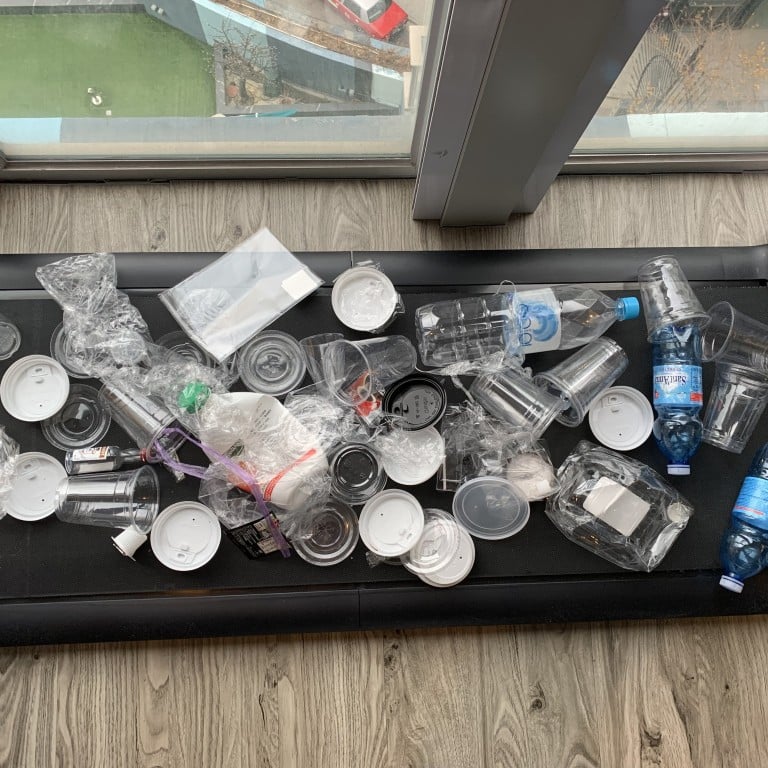
Plastic waste created by Hong Kong’s 21-day hotel quarantine – what can be done to cut down the mountainous amounts?
- During a recent three-week stay, one guest attempted to limit his plastic wastage as much as possible – with mixed results
- Some hotels are doing what they can to help, such as by providing reusable cutlery and limiting non-essential items like toothbrushes to being on request only
As Hong Kong marches towards its seventh quarantine cycle for returning residents (with approved hotels now numbering 44, up from 40), one quantifiable problem remains clear: the use and disposal of plastic items by hotel guests, which environmental group The Green Earth estimates has already surpassed 100 million pieces.
But not all trash is plastic. While spending a recent three weeks at the Hong Kong government’s pleasure at the Ovolo Southside hotel, Wong Chuk Hang, I did what I considered the right thing and largely stopped the ingress of plastic items to my room.
The plastic items already inside on arrival (water bottles, television remote control wrappings, coffee sachets) plus those delivered in the first few days (plastic cups, lids for paper cups, condiments pots) and those dropped off by friends already amounted to 65 individual pieces being deposited in a nearby recycling bin after checkout.
But the sacrifices made in the pursuit of a zero-plastic personal policy were not onerous. Ordering beer (aluminium can) instead of wine (plastic cup) during happy hour, cutting out fruit juice, going without milk and boiling water in the kettle provided, then refilling the original water bottles, meant almost no more plastic found its way into the room for 17 days.
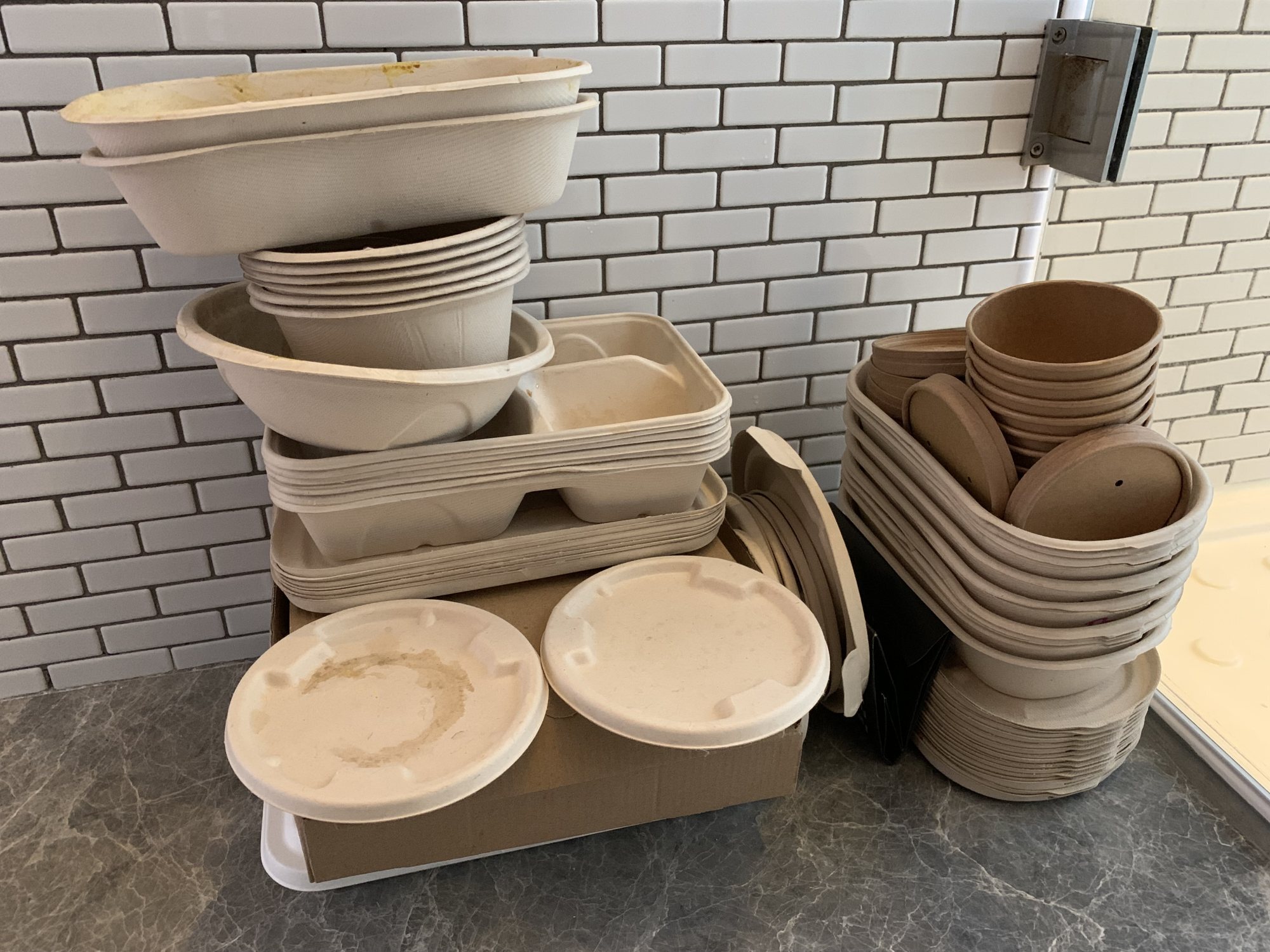
What did breach the guard, however, was a 231-strong collection of “biodegradable” cardboard containers and lids.
“We have two properties and 200 rooms [in total] and at any given point we’re using about 160,” says Sonesh Mool, operations manager of Ovolo Hotels. “Based on that, we have about 200 guests having three meals daily. With three meals we’re looking at about 600 cardboard takeaway containers.
‘Too cheap and too convenient’: Hong Kong’s plastic pollution battle
“We’ve avoided styrofoam, but we’re still talking about 18,000 pieces a month, at least, for our small properties here. And compared to the bigger hotels, with 400 to 600 rooms, our numbers are pretty minimal.”
Do all 18,000 end up in landfill?
“Yes,” says Mool.
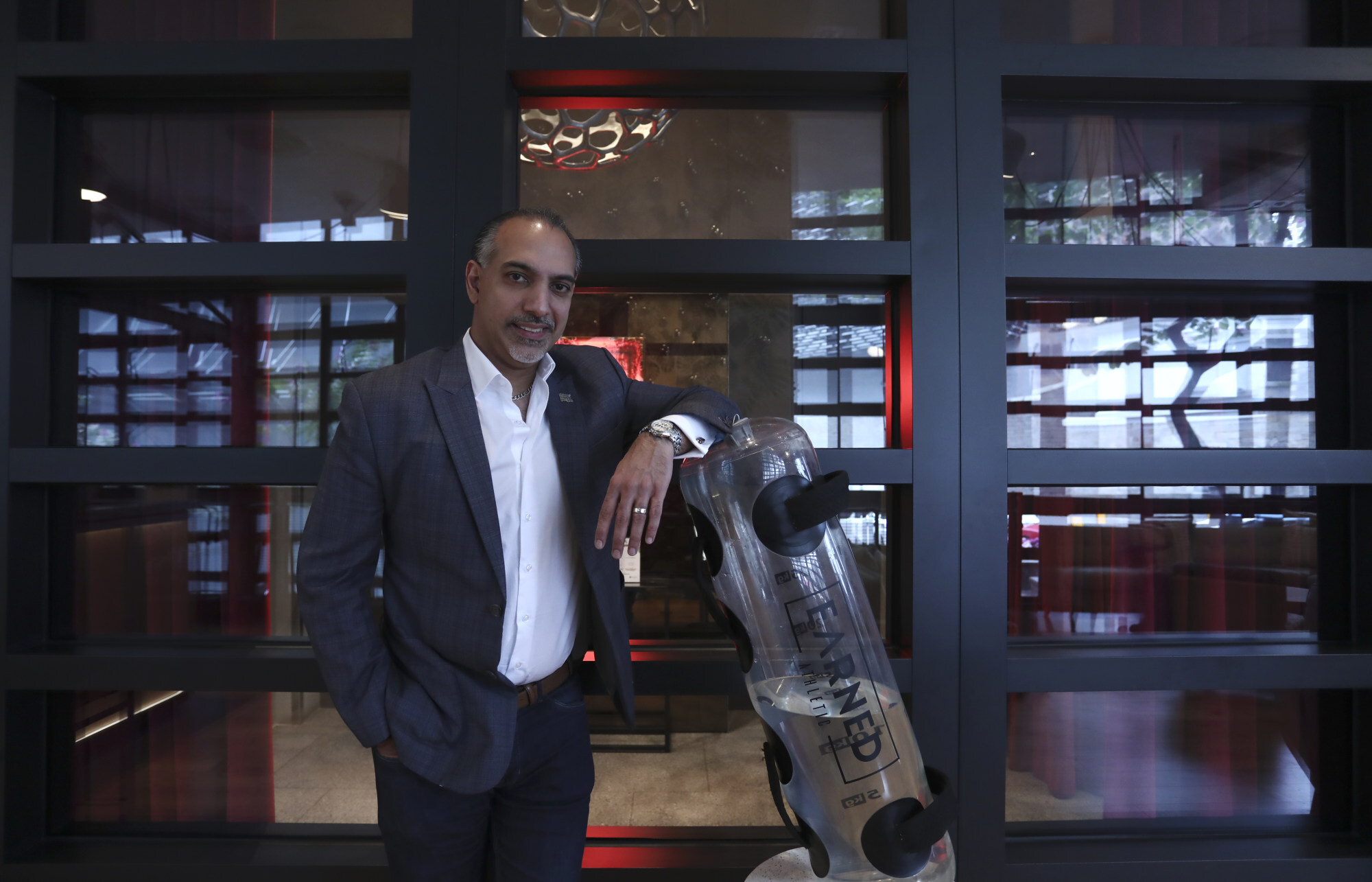
But all those food containers are eco-friendly, aren’t they?
Sadly, Edwin Lau Che-feng, founder and executive director of The Green Earth, has disappointing news. “Most of the cardboard food containers are not made purely of paper,” he says. “To prevent grease or liquid from leaking they usually have a layer of plastic coating inside, so they are not as recyclable as paper.
“Paper will break down in landfills, but the plastic layer, like a plastic bag, will take as long as 1,000 years. During that process it will disintegrate into smaller fragments and eventually become microplastic particles – a serious plastic-pollution problem worldwide.”
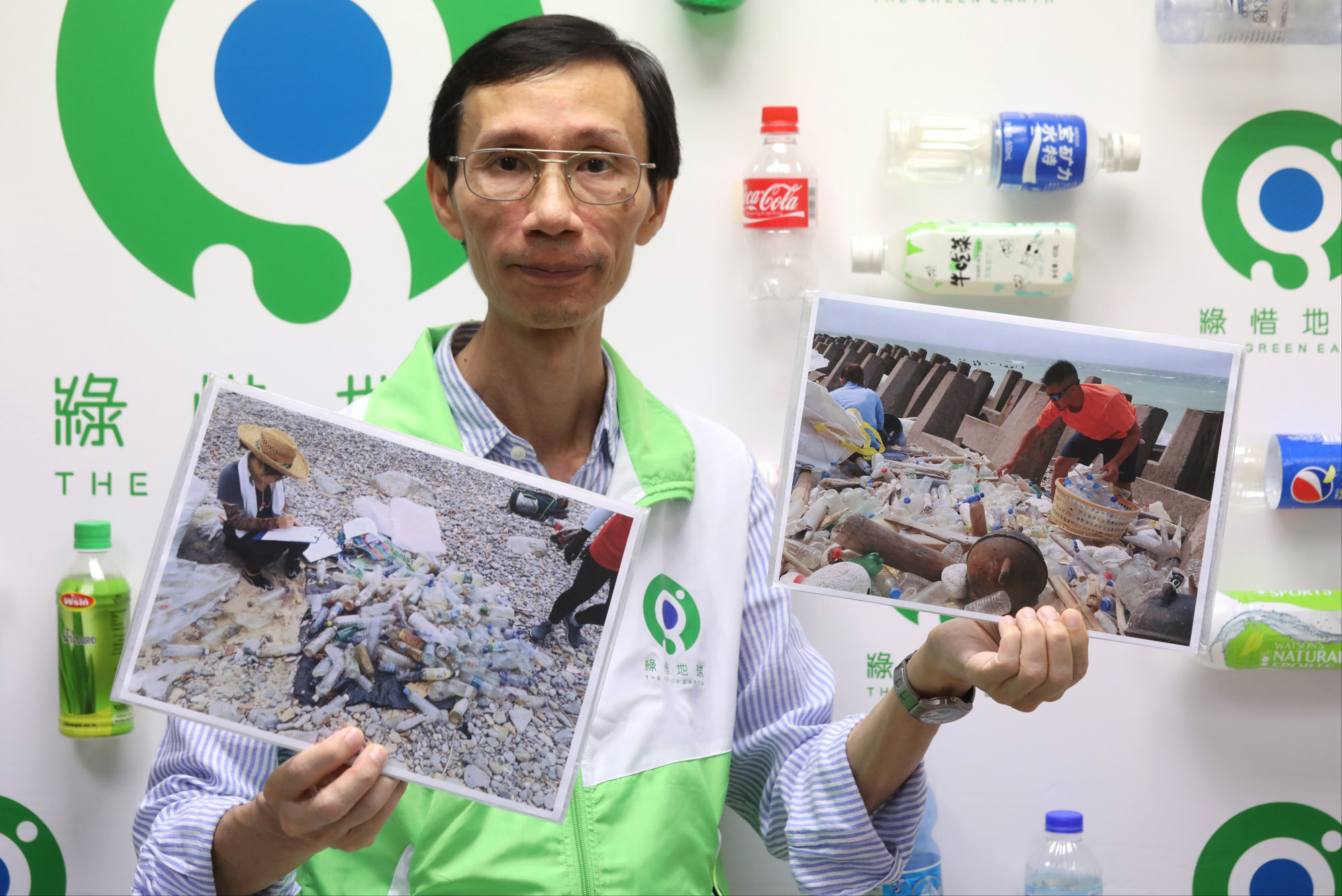
Choking oceans and environmental catastrophe notwithstanding, the tide of plastic pollution is still swelling. But in the face of government regulations ignoring green concerns in favour of a belt-and-braces approach to the vague possibility of virus transmission via a contaminated surface (a risk “considered to be low” by the United States’ Centres for Disease Control and Prevention), quarantine hoteliers are not unaware of the anti-plastic gospel.
“There’s no official line [from the hotels] but as general managers we all communicate and we’re on the same page,” says Mool, reiterating a willingness to explain to the government the effects of tough operational challenges posed by current regulations, not least those resulting in the production of waste.
Still, the hotels do what they can.
How Hong Kong’s big, stinking, toxic waste problem is becoming a crisis
“Once we realised we weren’t getting anywhere with our concerns, we tried to be creative,” says Josie Bristow, Ovolo’s assistant director of marketing. “So instead of providing guests with plastic cutlery, for example, we started giving out reusable sets – something other hotels have picked up on.
“Some guests are also attaching their own water filters to taps, which we certainly encourage.”
Mool adds that “non-essentials such as toothbrushes, shower caps, razors are now on request only, because anything left behind when a guest checks out – even closed, sealed, unused – we have to discard. It’s a huge loss.”
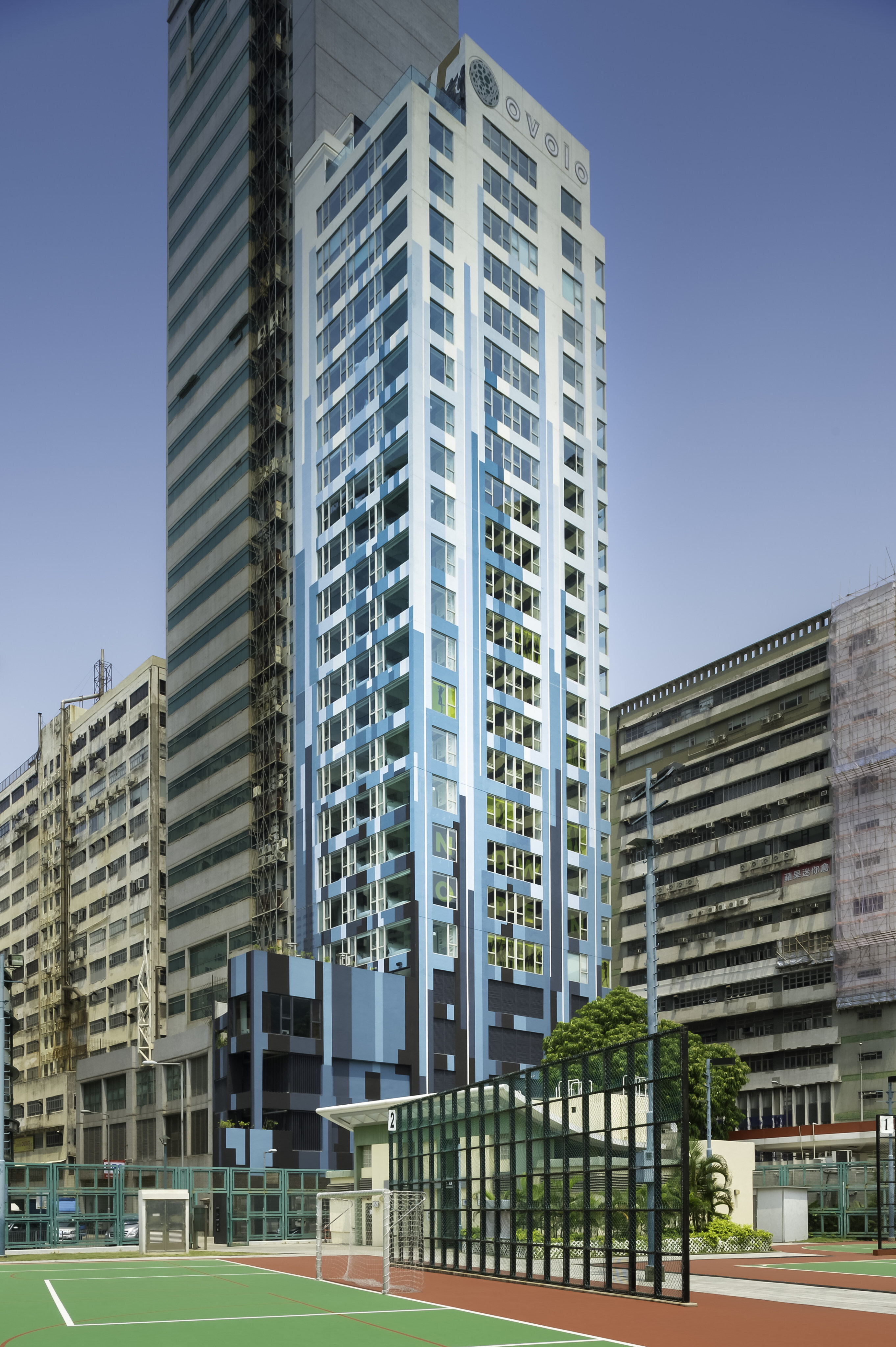
Both agree that any real change in this culture of disposability must be guest-led. But at least those guests who check out with five large bags of recyclables they deposit at the nearest recycling bins can be pleased with their efforts, right?
Not really. “With most ‘biodegradable’ containers, plastic or paper, I believe it’s just a ‘look-green’ claim,” says Lau. “A better approach is to avoid single-use food or drink containers for reusable ones.
“Recycling is not an effective solution: the Hong Kong recycling rate for plastic items is just 10.8 per cent.”
780 million plastic packaging pieces used in online shopping orders in 2020
So, using a scale of our own devising, say, the Environmental Obliteration Index (EOI), let us look at the possible cost of mandatory quarantine.
Based on the experience of myself, as one, cautious guest, who in three weeks used 231 items of “recyclable” cardboard and 65 items of Earth-defiling plastic, we now know that, however much is left in multicoloured roadside bins, nothing much is recycled anyway; reusable utensils and other products could offer some hope, if only they would be widely adopted; and many “green” claims made for items on which we rely daily are false.
The EOI formula, therefore, would be as such: average number of guests in a quarantine hotel x number of meals taken per day x number of single-use items supplied per meal x number of quarantine hotels x number of days of the quarantine regime = do we have enough zeros?
The Department of Health did not respond to a request for comment.











